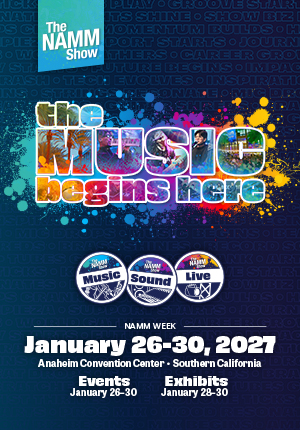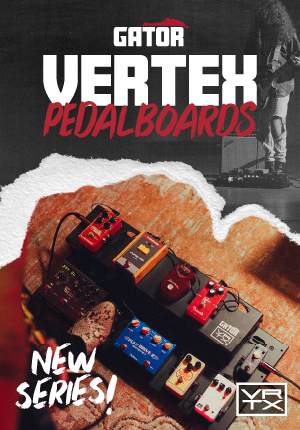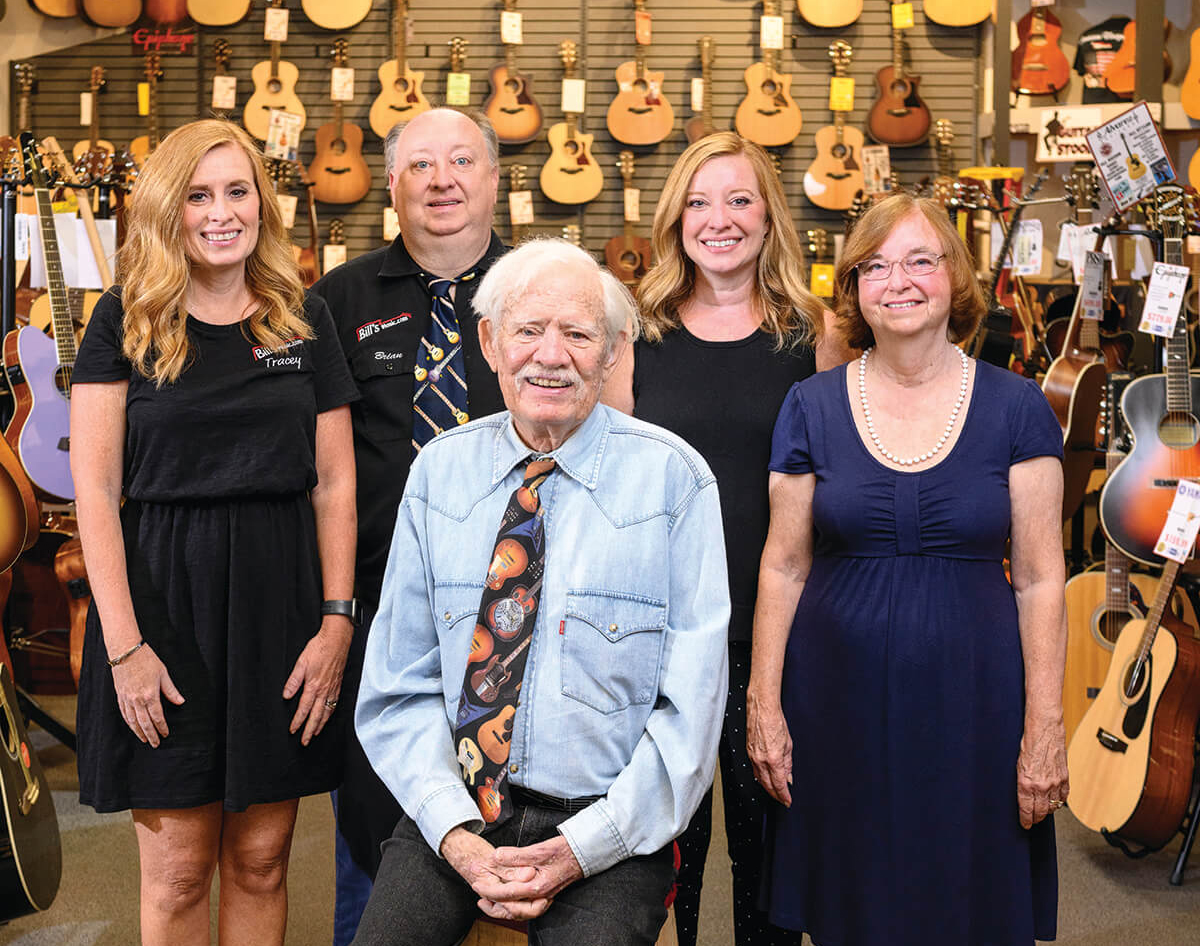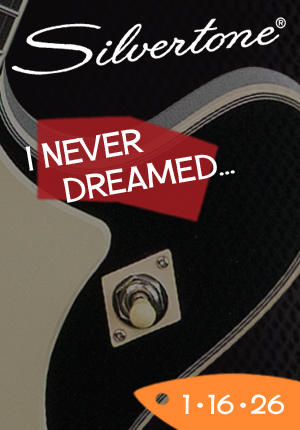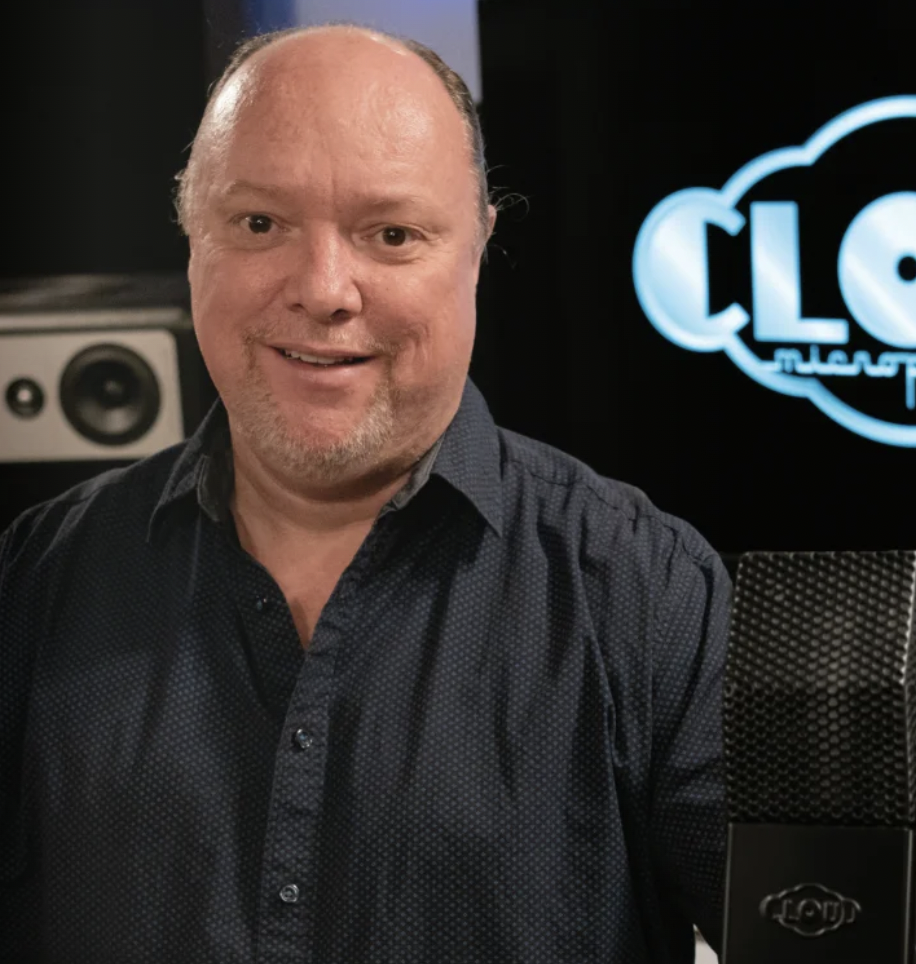
Cloud Mics CEO Rodger Cloud
HQ: Tucson, Arizona
Founded: 2008
Employees: 12
Best-selling Product: The Cloudlifter
Fun Fact: Cloud said the best concert he’s attended recently was Steely Dan in NYC. “David Crosby came out for a cameo,” he said. “It was quite a surprise to see David Crosby.”
How do you start your day?
I make breakfast and lunch for my son and take him to school. I try to get out and walk the dog. It helps me set my mind for the day. Then, when I get to the office, I dive into whatever I need to do.
How did you start Cloud Mics?
I ran a studio in a commercial building, but it was makeshift at first. I played gigs, and I was playing in bands. I was just trying to find my way in music and find my sound. I was always searching for that sound — chasing the sound, even now. I started working with a guy named Steven who had moved into the building repairing vintage mics, and immediately I became fascinated trying out these mics. Once I heard the depth and beauty of a well-serviced ribbon mic, I had this sense that I needed more ribbon mics because it was just such a pure and rich and natural sound that didn’t need as much finessing in the post-production. Steven helped me refurbish ribbon mics. The reason I tried to restore these mics is because I couldn’t afford to outfit my studio with a bunch of great new mics.
But when restoring vintage mics, you don’t know what you’re going to get, so it’s hard to scale. Eventually I set out to create my own design. And, once again, when I got the first prototype design, it sounded so beautiful and there was so much depth that I had this overwhelming sense that I had to get it out there. Becoming a manufacturer wasn’t on my radar at all, but it felt like it was almost my duty to make this mic available to the world. It was almost like I didn’t have a choice. It was like a spiritual moment, like, “You have to do this.”
So, I went to my local Small Business Development Center and got some good counseling and help with making a business plan.
We were told over and over that the only way we could succeed was if we manufactured in Asia. But the more people said that I couldn’t do it here in the U.S., the more determined I became. So, I found a family-owned metal shop that understood what I was trying to do and helped work out some of the early prototypes. The rest is history.
So, how do you manage to manufacture in Arizona?
For me, it’s important to have values and ethics when it comes to manufacturing. Like I mentioned, I was urged to move the manufacturing to China, and I just haven’t. I’ve stuck to it. As a result, we’ve received two Presidential Export Awards. The awards were the President’s “E” Award in 2016 from the Obama Administration and “E” Star Award in 2021 from the Biden Administration, and they’re both for our expansion of the U.S. economy, but also for growing the U.S. economy here because the work is going to subcontractors all here in the Southwest.
And some of those subcontractors are part of indigenous communities, correct?
That’s right. I’ve gotten to know a lot of people in the indigenous community. There are a bunch of reservations in Arizona, and since coming to Arizona, I’ve made a lot of relationships. I actually stumbled upon our Navajo partner by chance. When we found that they could do the circuit board manufacturing, we jumped at the chance.
They really put heart, soul and prayers into what they do. They equate it to what their ancestors did with fine jewelry, and they put a lot of pride and care into the work they do. I think that’s part of what makes it special. There are people who work there that have great high-paying tech jobs in a community that’s one of the most impoverished areas in the county.
So, it’s great for them because they can live and work in their communities and get good work and not have to move to Tucson or Phoenix.
While the Navajo nation contractors aren’t our employees, there are about a half-dozen who are dedicated to just Cloud Mics.
How do you oversee all these subcontractors?
I have a lot of great staff here in management roles, and, when hiring, I look for good managers. Scott Haughey has been our general manager for more than 10 years now. I find that it’s just a matter of empowering people and just leaving them alone for the most part, but interacting with all of them. In our engineering department, we had a gentleman who was key during the supply chain challenges during the pandemic. He made it so we didn’t have a significant gap in our deliverables. He recently retired.
Have those supply chain issues begun to ease for Cloud Mics?
There’s always something pinching somewhere, but we rise to the challenges. We had fairly minor difficulties compared to other companies because we manufacture locally here in the U.S.
That’s one of the many benefits to manufacturing in the States, I take it.
Exactly. For instance, we had the hardest time sourcing the little headers that go on our circuit board. So, we had someone just make them from scratch. There were only three weeks that we couldn’t fulfill orders, and it was never at the dealer or the customer level. We never ran out.
That’s really a testament to U.S. manufacturing. It made a huge difference. I saw a lot of my peers get crushed by supply chain issues. Music retailers said they would take whatever we could give them because they couldn’t get anything from anywhere else.
Today, we make 95% of everything here in the U.S. Everything we can make here, we do. And if we don’t, we still try to use items that come from countries that have robust labor practices that are in line with our company values, such as our partners in the U.K. and Liechtenstein.
Since starting Cloud Mics, What would you say has been your company’s greatest achievement so far?
There have been many fine moments along the way, however, having received the two aforementioned Presidential Export Awards definitely tops the list. These prestigious awards also came from two different administrations. Plus, they recognized our sustained commitment to U.S. manufacturing, both locally and on the Navajo Reservation in northern Arizona.
The Cloudlifier Mic Activator has proven to be a best-seller, year after year. Can you talk about how you created this product and what its success means to you?
When I started the company, the first product was a ribbon mic. We were pushing ourselves to make a circuit that was super clean and super great, and we pushed ourselves to come up with a cool design.
In the process, we came up with the idea to put the circuit in a little metal box just to test it out, and it took about 30 seconds before I realized it was the coolest box I’d ever laid my hands on. There wasn’t anything like it. It was incredibly clean and pure, giving you more of the mic itself and reducing the impacts from the preamp when you drive it up to its upper gain range. We just realized that it was a really cool tool. I knew it was a hit.
In fact, I still remember the first time I plugged it in. I was completely floored. It was developed by accident, because we just wanted a good circuit in our mics, but we came out with a great box that works with a lot of microphones.
What would you say is the company mission of Cloud Mics?
When it comes down to it, the whole reason for starting Cloud Mics was that we really wanted to empower people to make high-quality content with basic equipment in the comfort of their home — whether they’re in a big studio or a makeshift environment. Our mission is to save music, in a way. It felt like there were some years where, at the home level, you couldn’t record on a budget and have a high sound quality. That was part of my original mission.
What would you like Cloud Mics to accomplish in the next 10 years?
I’d like to continue to grow and create solutions that power musicians. It’s the musicians and the content creators who are the reason that we do this, and we’d like to continue to innovate for them.
Speaking of content creators, what music have you been streaming lately?
I’ve been listening to Liz Painter recently. She’s an artist who we’ve been working with a lot lately.
If not in the music industry, what work would you be doing today?
I would probably be doing something in the service industry, although it’s hard to imagine anything outside of what I’m doing right now. I’m really interested in not-for-profit work. We have those really great relationships with the indigenous communities locally in Arizona, so maybe something with that as well.

